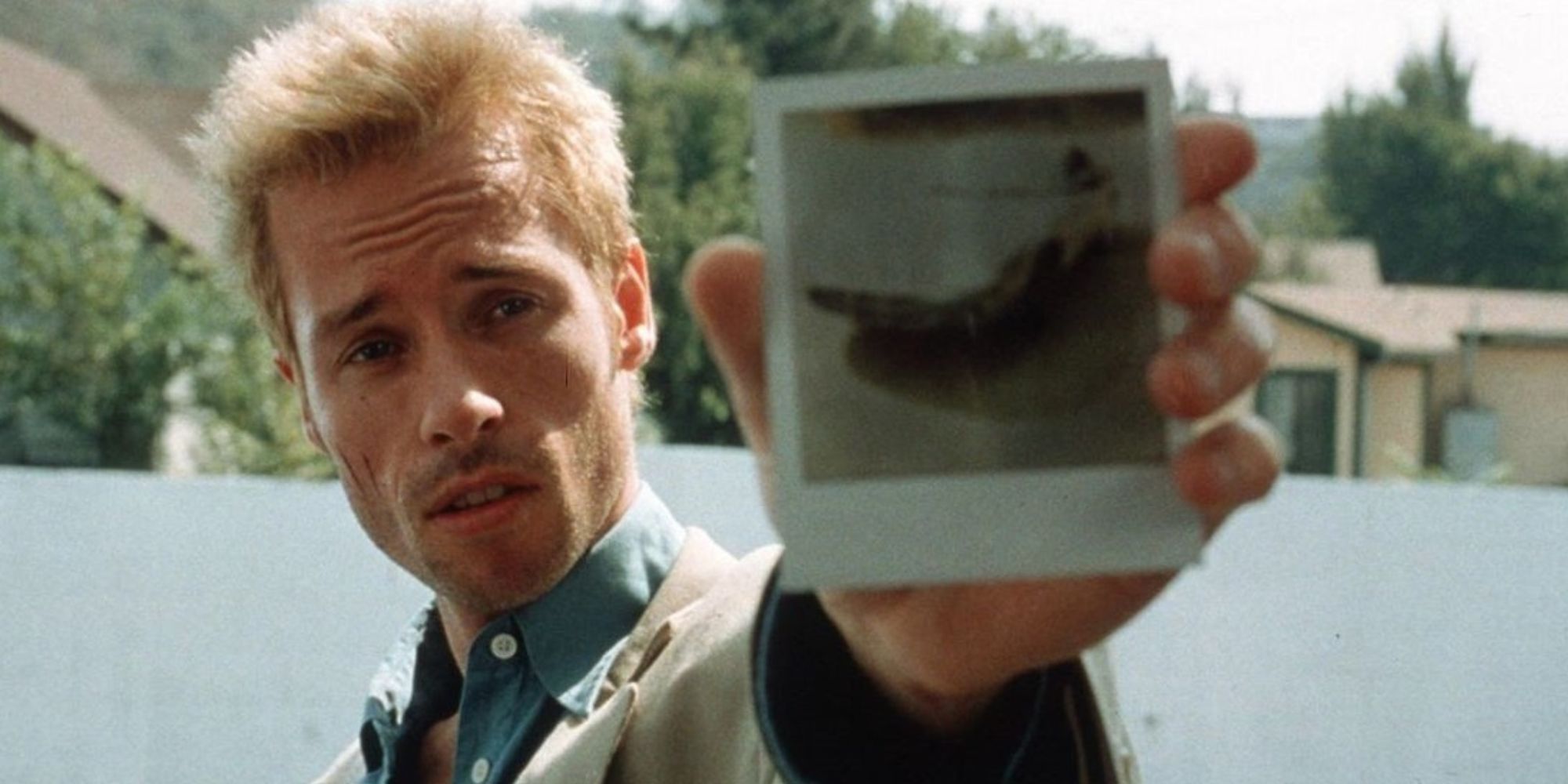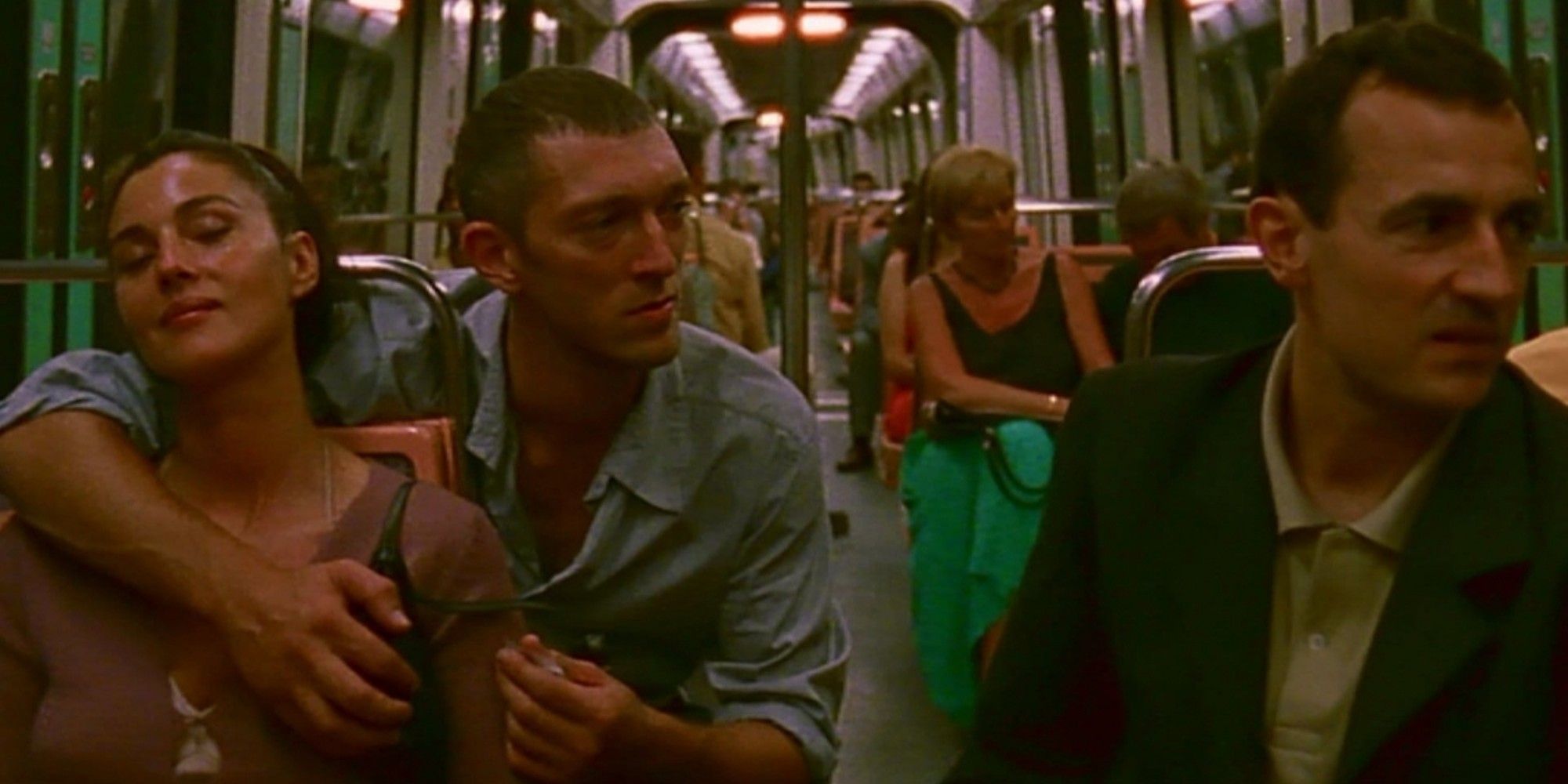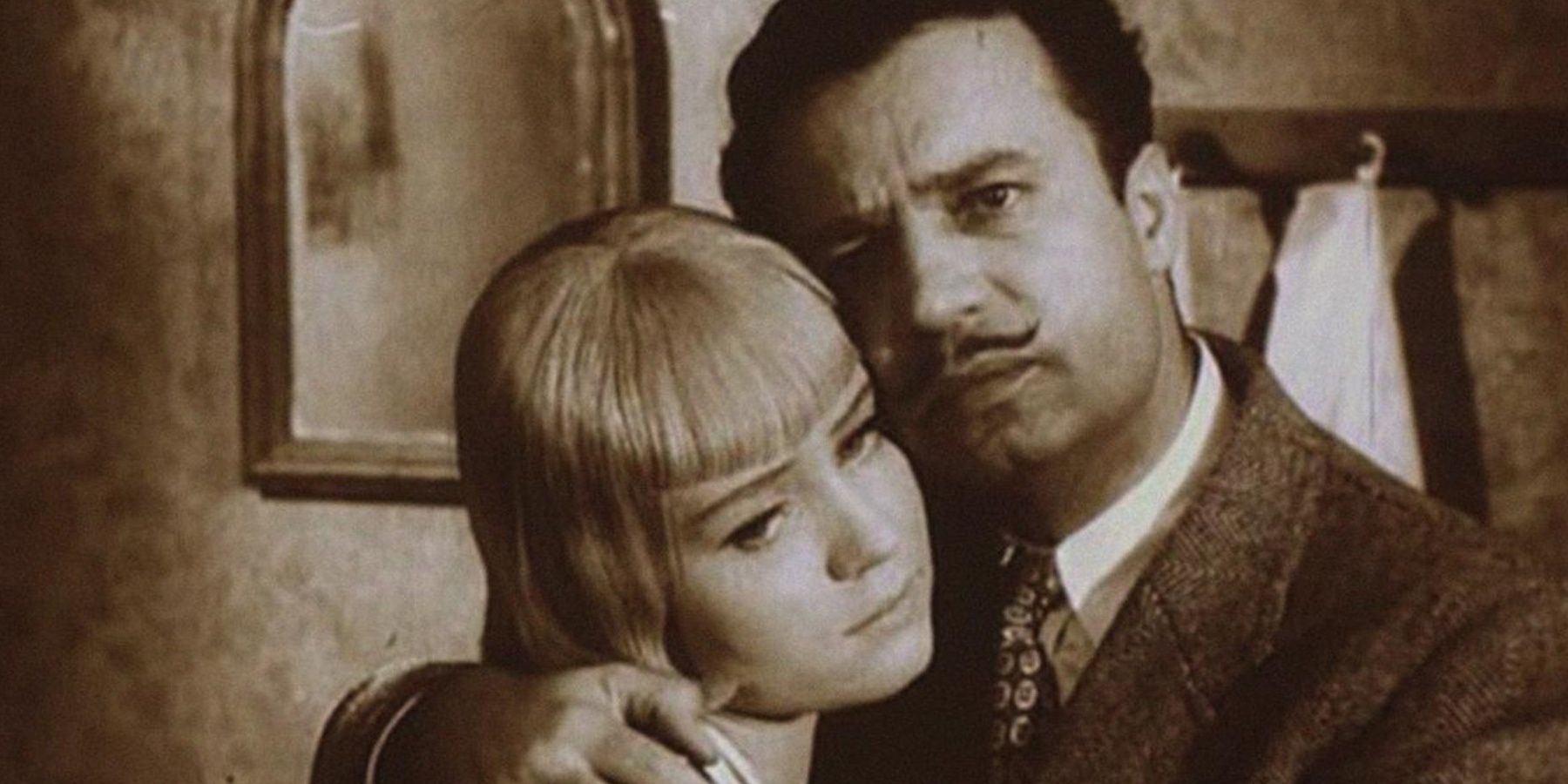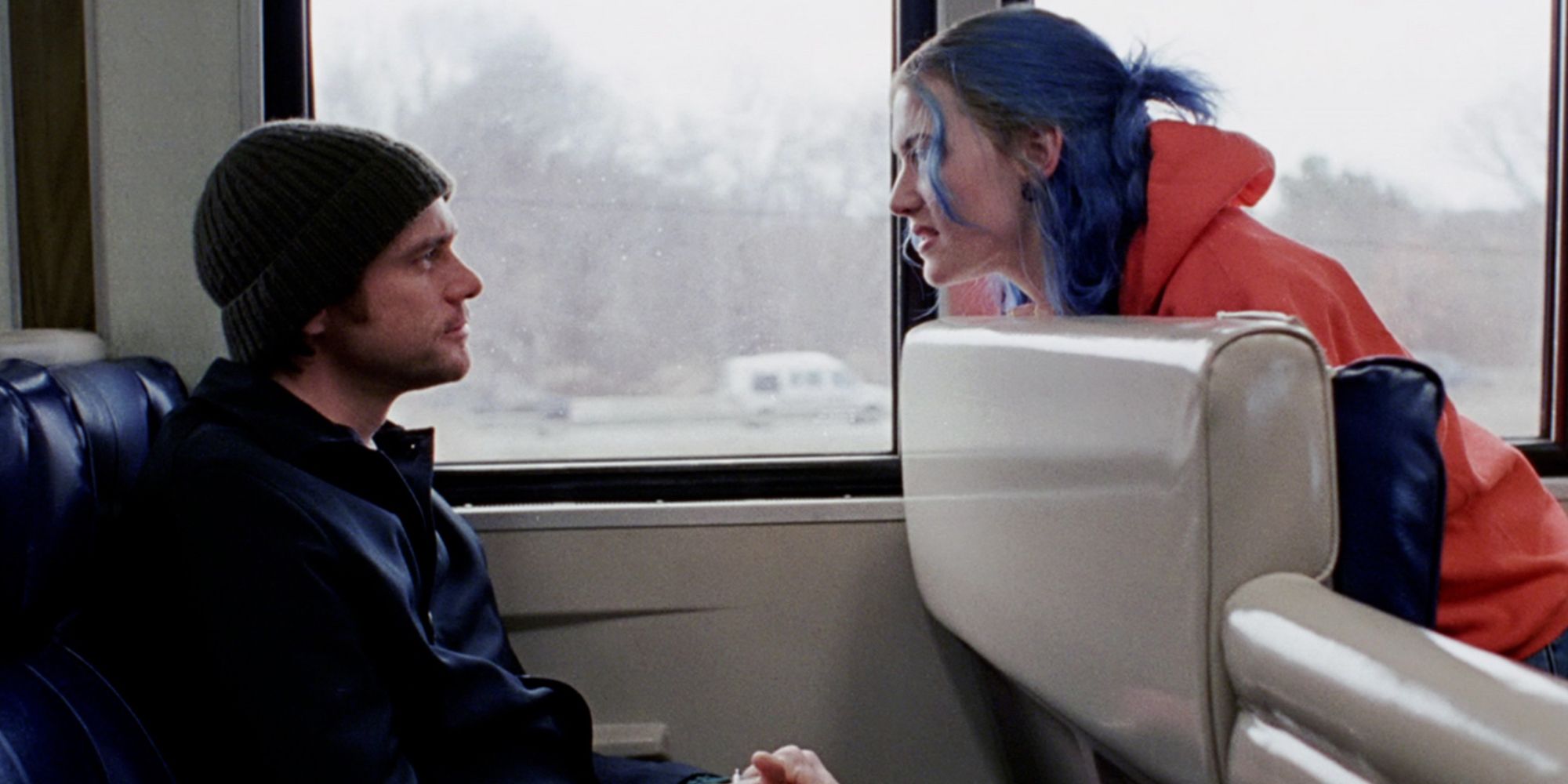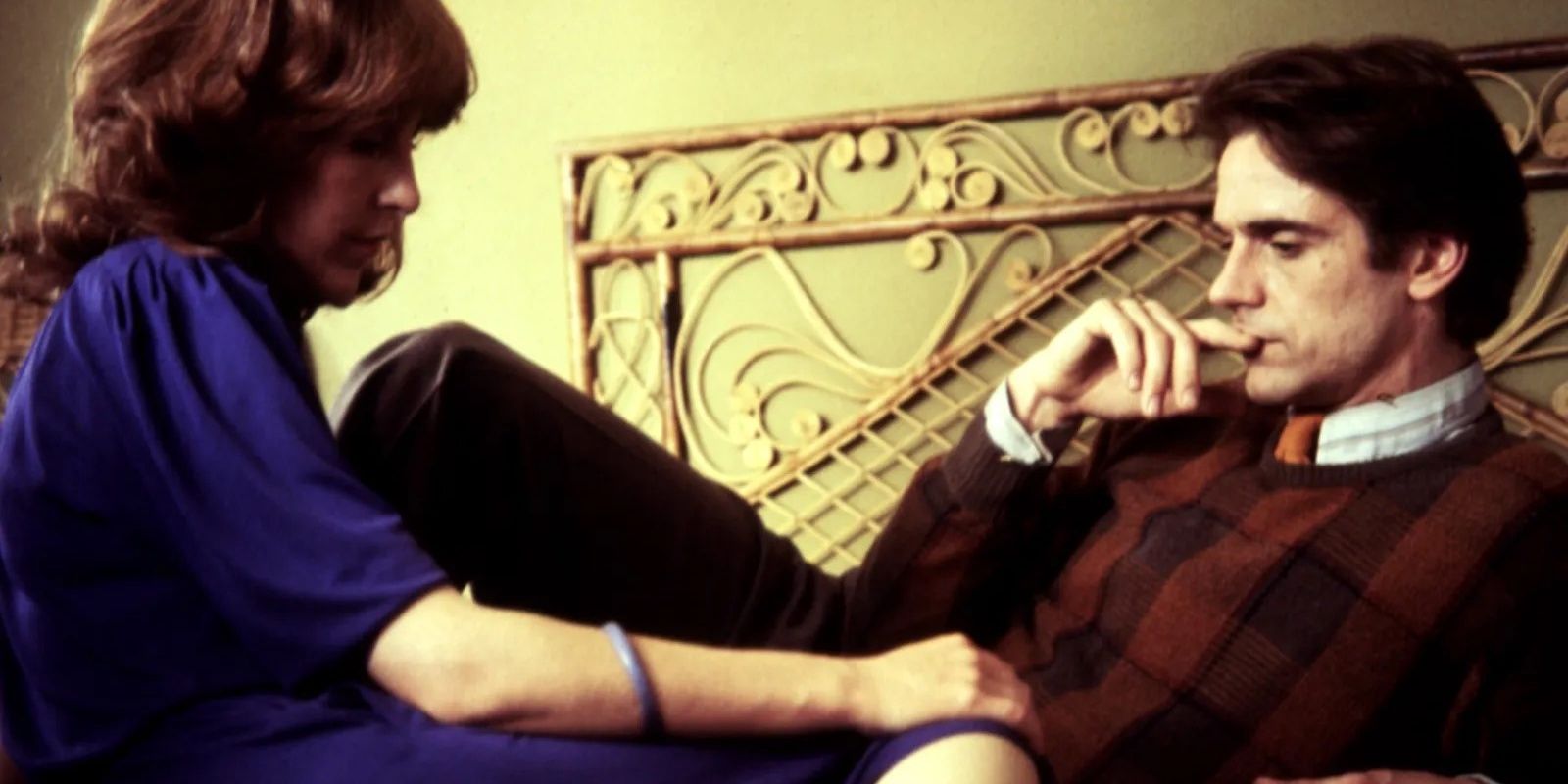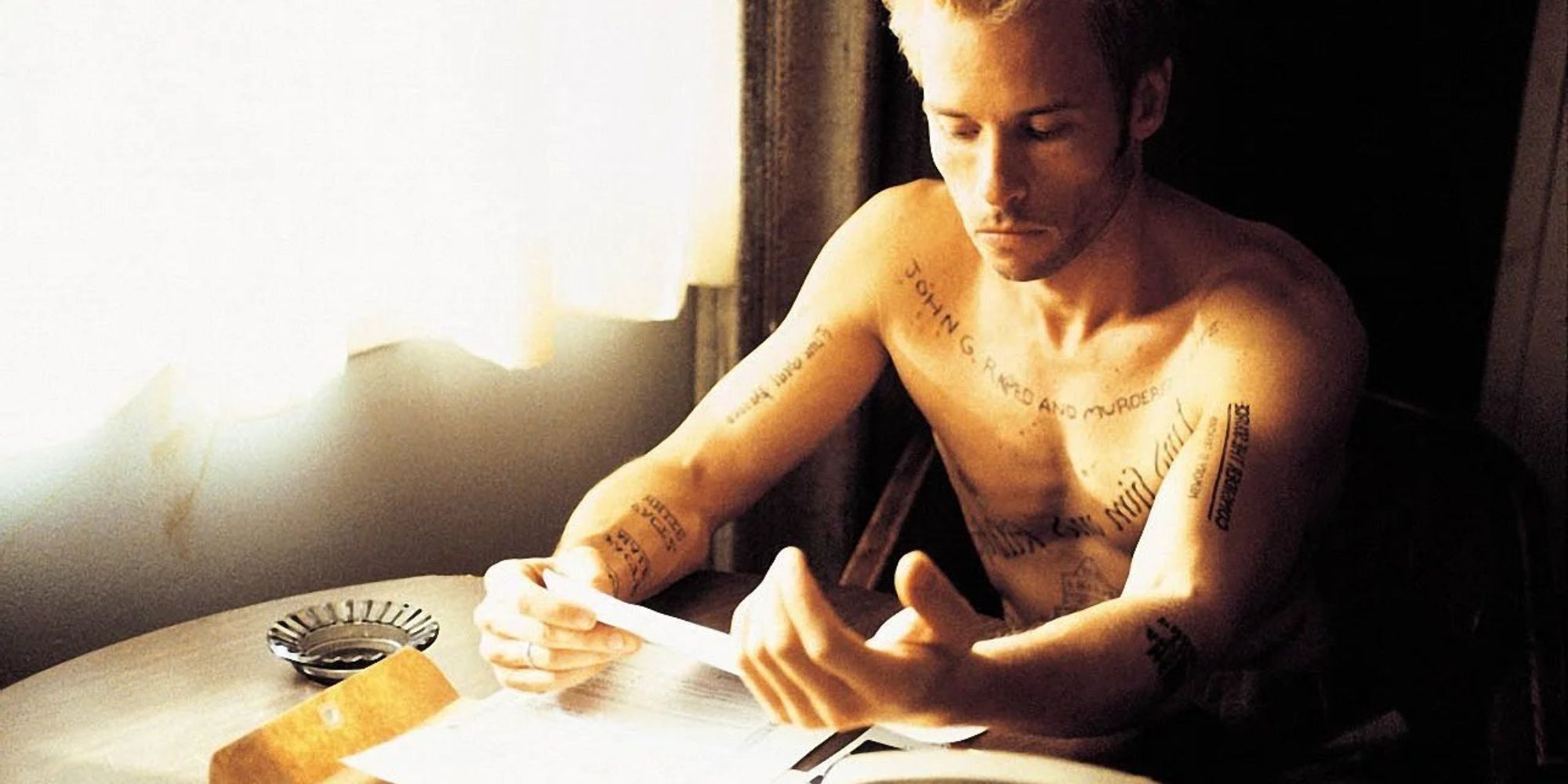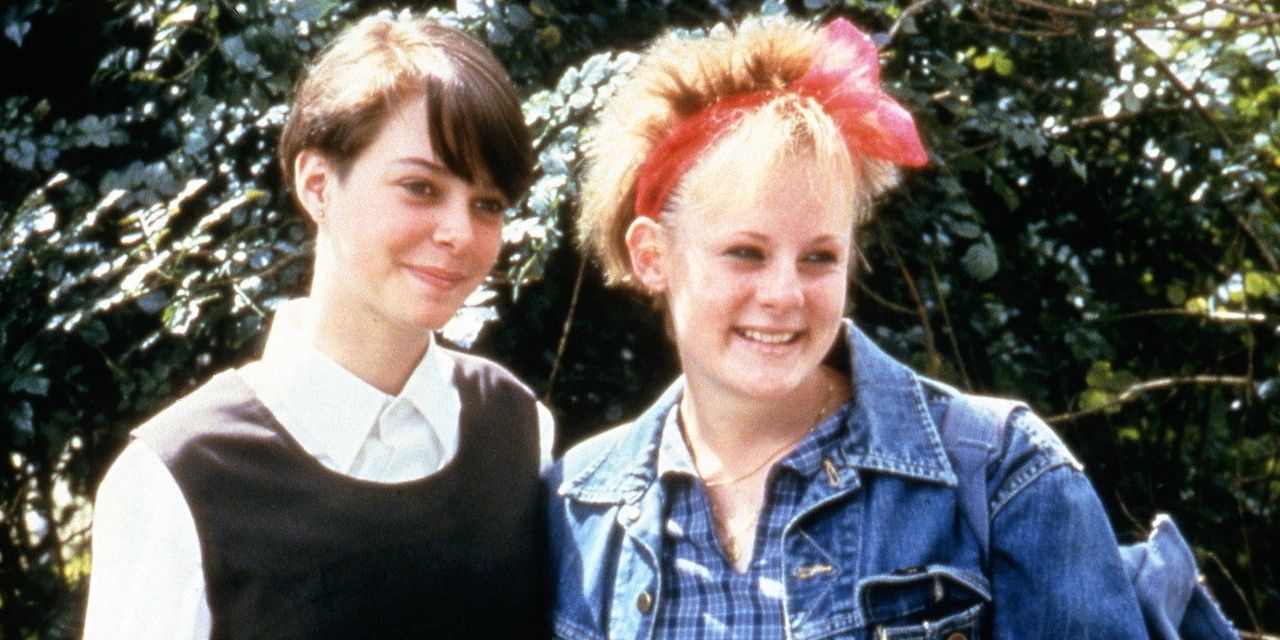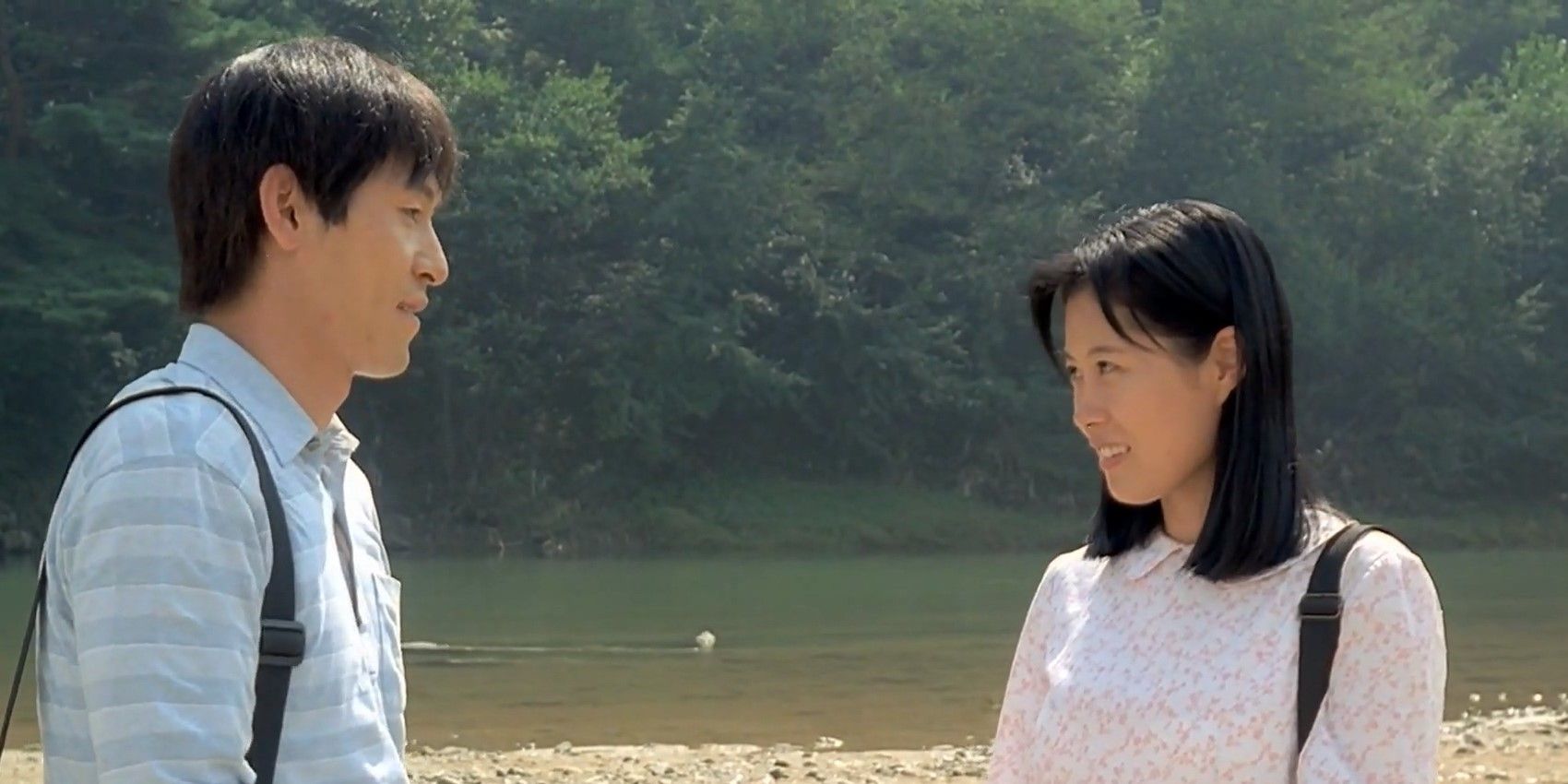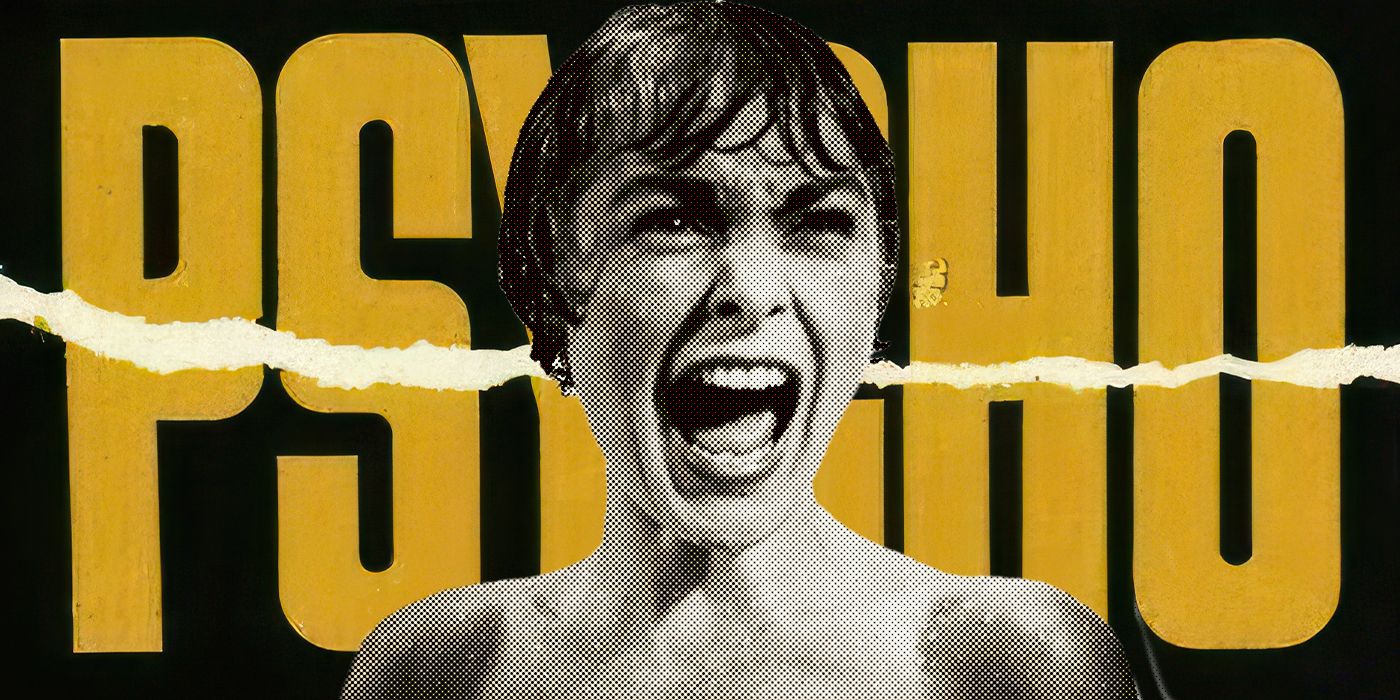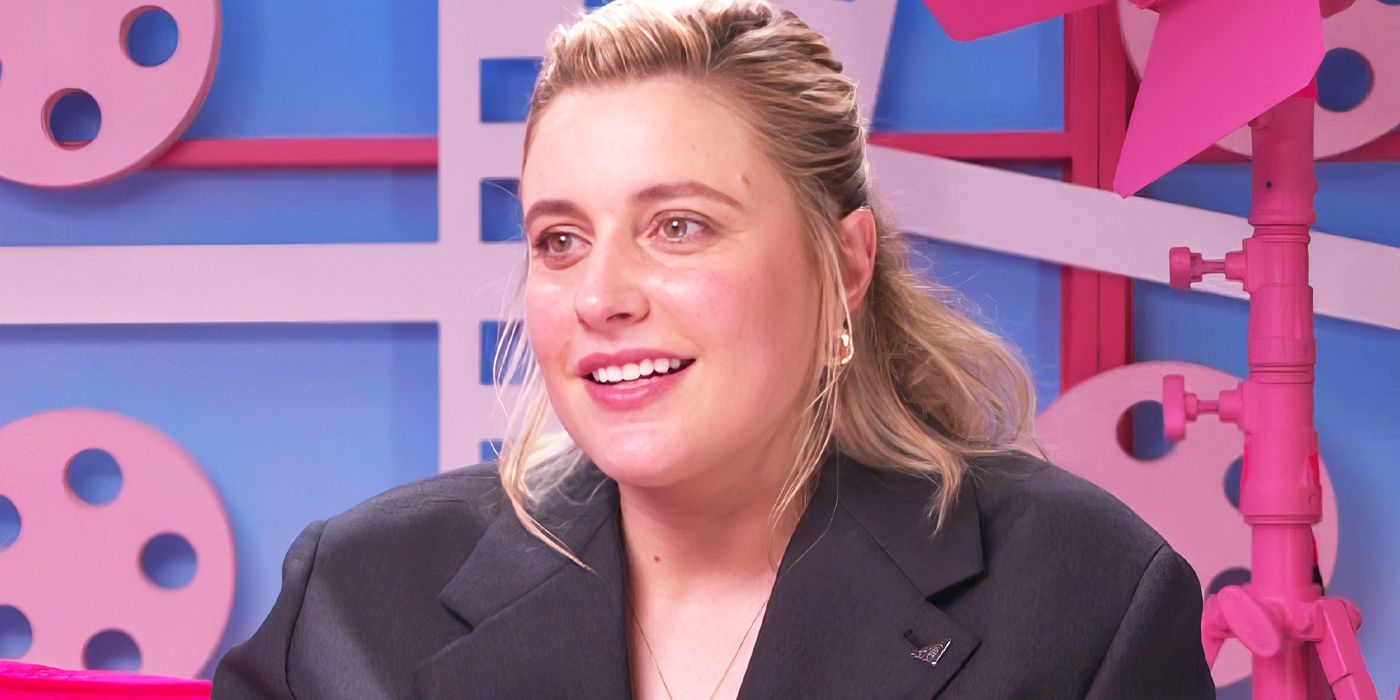This article makes reference to graphic and sexual violence. Reader discretion is advised.
Plenty of movies experiment with time, subverting the expectation of chronological order through flashbacks, flash-forwards, or an overall non-linear structure (easy example: Oppenheimer). There are also many films that begin with a character’s death (Lawrence of Arabia, Citizen Kane), or some other downfall (Amadeus, Raging Bull), so that the primary narrative is seen through the lens of inevitable tragedy.
Then there’s reverse-chronology: scenes that move backward in time, rather than forward. It’s a jarring tool, for sure, which is why movies that employ it usually do so for just a few scenes (such as Donnie Darko). But some examples are much more extreme, more ambitious, and more scarce. Namely, they go backwards the whole way (or throughout a major plot line). So here they are—counting down to the best reverse-chronology movie ever made.
10 ‘Shimmer Lake’ (2017)
Directed by Oren Uziel
No doubt inspired by Fargo (and Pulp Fiction by extension), Shimmer Lake is an odd neo-noir that traces through the week since a poorly-executed bank robbery took place. The robbers find themselves in difficult circumstances trying to get away with the money. Meanwhile, the self-proclaimed “E-team” of the FBI show up to assist the local police. The cast includes John MIchael Higgins, Rainn Wilson, Benjamin Walker, Stephanie Sigman, and more.
Shimmer Lake received mixed reviews from critics: it has a 60 on Rotten Tomatoes and Roger Ebert.com gave it two out of four stars, claiming that the movie’s structure “is curious enough that it will take you to the end of the film, but with little else to latch onto in the process.” Written and directed by Oren Uziel, this dark comedy has some amusing moments. Overall, though, this is a case where the material is designed mostly to create a twist at the end—rather than create a story where the characters, plot, and themes feel whole.
shimmer lake
- Release Date
- June 9, 2017
- Director
- Oren Uziel
- Runtime
- 83
- Main Genre
- Crime
Watch on Netflix
9 ‘5×2’ (2004)
Directed by François Ozon
Cinq fois Deux stars Valeria Bruni Tedeschi and Stéphane Freis as a couple whose relationship is explored through five separate sections that begin with the completion of their divorce and finish with the mere implication of a burgeoning romantic connection. Directed and co-written by François Ozon, this French film establishes from the get-go that the husband is awful, so the wife becomes the character the audience attaches to.
Unfortunately, the film doesn’t dive as deeply into their relationship as it could have, and the reverse-chronology doesn’t always feel necessary (its frank depiction of sexual assault might deter some viewers as well.) That said, the direction and performances are still compelling. Ozon has been nominated for such prestigious awards as the Palme d’Or, Golden Bear, and Golden Lion numerous times—yet even an artist of his caliber can struggle with such a daring structure.
Watch on Pluto TV
8 ‘Irréversible’ (2002)
Directed by Gaspar Noé
Gaspar Noe‘s disturbing experiment begins with the aftermath of a revenge-fueled pursuit. The wild camera spins, shakes, tilts, rises, falls, and follows the characters as if it wants to induce vertigo: a warning to the audience, and a manifestation of the blind rage that drives this simple plot backwards. The film’s first half infiltrates the mood of its second half’s innocent, happier times.
Extremely controversial, Irreversible has been criticized for its unusually graphic portrayals of violence and sexual violence. In its defense, one must consider its structure. As Roger Ebert writes, “ordinary chronology would lead us down a seductive narrative path toward a shocking, exploitative payoff.” The reverse-order, then, gradually moves away from violence and toward an unusually intense meditation on that violence.
Irreversible
- Release Date
- May 22, 2002
- Director
- Gaspar Noe
- Rating
- NC-17
- Runtime
- 97
- Main Genre
- Crime
Rent On Prime Video
7 ‘Happy End’ (1967)
Directed by Oldrich Lipsky
This dark yet silly Czechoslovakian comedy takes the reverse-chronology structure to its extreme: not only do the scenes run in order backwards, but the characters’ movements and conversations are displayed backwards, too. For example, Happy End begins with a decapitated head reattaching to its body. It also has amusing meals with characters sitting at a table and removing food from their mouths, as if people were vending machines.
This approach can be difficult for audiences after too long, which is probably a major reason why the runtime is a brief 71 minutes. The story told in chronological order would be a very familiar and predictable one, but – ingeniously – the dead man (played by Vladimir Mensik) narrates these events as if they’re not rewinding at all. Directed by Oldrich Lipsky, this short, eccentric work illustrates that no matter what order you go about telling someone’s life story, conflict and heartbreak are inevitable.
Watch on Internet Archive
6 ‘Eternal Sunshine of the Spotless Mind’ (2004)
Directed by Michel Gondry
Director Michel Gondry‘s Eternal Sunshine of the Spotless Mind uses a good amount of reverse-chronology to show the repercussions of a medical practice that lets people erase their own memories of an ex. This company doesn’t tell the ex, either, possibly out of fear that the ex will return to woo the patient and manipulate the relationship, which is apparently up to friends and family to prevent. It would be more practical for this well-meaning establishment to advertise exclusively to those who want to erase their recollections of somebody who a) died and b) caused severe PTSD, or some other psychological trauma that would be alleviated by this treatment.
Shaky suspension of disbelief notwithstanding, this romantic dramedy sci-fi is one of the best indies of the 2000s. It boasts great performances (especially from Kate Winslet), gorgeous visuals, and a Charlie Kaufman screenplay that delves further and further back in time to demonstrate how it’s better to learn from what you’ve lost than to try and forget it. Another valuable message: pretending to be somebody else doesn’t get you anywhere for long.
Eternal Sunshine of the Spotless Mind
- Release Date
- March 19, 2004
- Rating
- R
- Runtime
- 108
- Main Genre
- Drama
Rent on Amazon
5 ‘Betrayal’ (1983)
Directed by David Jones
Based on Harold Pinter‘s play of the same name, Betrayal ambitiously tells the story of an extramarital affair that falls apart over time. Pinter wrote the screenplay and David Jones directed, a collaboration that garnered positive reviews from critics who had largely never before seen such commitment to the reverse-structure.
The first wholly reverse-chronology feature film since the ’60s, this romance influenced likewise-structured works to come. And rightly so, as it majestically and tragically details the relationships between a married woman (played by Patricia Hodge), her cuckolded husband (Ben Kingsley), and his best friend (Jeremy Irons). Since the beginning of the film establishes that the husband himself cheated as well, it’s difficult to firmly stand behind any side of this love triangle. So the viewer is left somewhat in the middle, finding space to empathize, pity, and judge everyone involved. A film with so little action and so much conversation requires great performances – and these remarkable actors deliver.
Buy On DVD
4 ‘Memento’ (2002)
Directed by Christopher Nolan
Memento is a mystery-thriller about Leonard Shelby (played by Guy Pearce), a man unable to create short-term memories after being struck on the night his wife was raped and murdered. Since then, he has been using notes, tattoos, and Polaroids as reminders on how to avenge his wife, which effectively makes him one of the most driven characters ever put on film. Odd that he doesn’t need anything to recall his condition, and how long it takes for his memory to reset seems dependent on the plot.
Nevertheless, director Christopher Nolan uses reverse-chronology to put a fresh take on neo-noir, and Guy Pearce’s performance does this complicated role justice. Also, not every storyline moves backwards, forcing the audience to focus as hard as Leonard does to keep track of what’s happening. In the end, they’re rewarded with an affecting (and surprisingly funny) examination of revenge, exploitation, and denial that culminates in what is arguably Nolan’s best film to date.
Memento
- Release Date
- May 25, 2001
- Rating
- R
- Runtime
- 113 minutes
Watch On Prime Video
3 ‘Two Friends’ (1986)
Directed Jane Campion
How many times has a TV-movie been screened at Cannes? At least once for sure, as director Jane Campion‘s beautiful Australian debut Two Friends did just that, marking the appearance of a new and brilliant filmmaker who would go on to win two Academy Awards (Best Original Screenplay and Best Director) for later works. In this film, two friends have grown apart after going to separate schools: a simple story with complicated emotions and told in a concise 78 minutes through five distinct sections.
Emotionally, Two Friends is structured like its reverse-chronology predecessor, Betrayal. Since this narrative moves backward all the way through, the melancholy of the friendship’s dissolution seen in the beginning hovers over its cheerier days displayed later in the film. The effect is such that the end of this powerful debut feels triumphant to its main characters and tragic to the viewer.
Watch on The Criterion
2 ‘Peppermint Candy’ (1999)
Directed by Lee Chang Dong
Writer-director Lee Chang Dong‘s Peppermint Candy starts with an apparently-deranged man dancing at a picnic, climbing onto nearby tracks, and letting himself get hit by an oncoming train. What follows are the events of the previous twenty years that led to this bizarre and dramatic suicide. Every section is poetically divided by the brief sight of this train chugging in reverse to reveal the course that led to that now-inevitable impact.
As this masterpiece of Korean cinema goes on, the audience gradually pieces together how peppermint candy serves as a rosebud of sorts for the deeply troubled protagonist. Likewise, one discovers how Yongho (played brilliantly by Sul Kyung-gu) became so desperate in his transition from young adulthood to middle age. Given that the viewer initially gets to know him at his lowest point, he’s not very likable at first, which is part of what makes the final few chapters in this movie so devastating.
Watch on Internet Archive
1 ‘Logistics’ (2012)
Directed by Daniel Andersson and Erika Magnusson
If the strength of a reverse-chronology film lies in its ability to convey disintegration, then this 857 hour-long experimental Swedish documentary represents the epitome of the structure. Other reverse-chronology movies reveal the decay of relationships, of stable identities, of expectations – but Logistics presents the disintegration of time itself. It goes without saying that this is the longest movie of all time.
Watching as pedometers are slowly transported in real time over land and sea, back to the factory where they were made, the viewer might eventually begin to think of all the more productive ways these precious resources and hours might have been used. Or of how many other devices must have gone on similar intercontinental treks to make it to their shelves and kitchen counters and cabinets. No one has the time to finish this movie (there’s also a 72-minute version)—much like how no one has the capacity to fully absorb the global magnitude of modern-day consumption.
Logistics
- Release Date
- 2012-00-00
- Director
- Daniel Andersson , Erika Magnusson
- Rating
- TV-PG
- Runtime
- 51,420 minutes
- Main Genre
- Documentary
Logistics is not available to watch in the United States.

